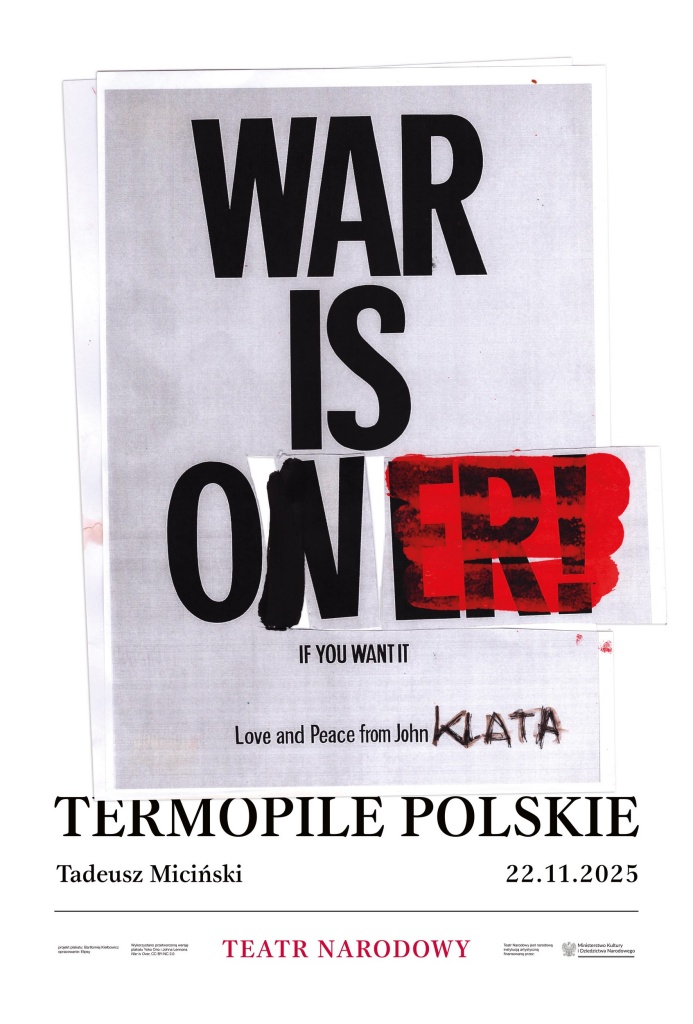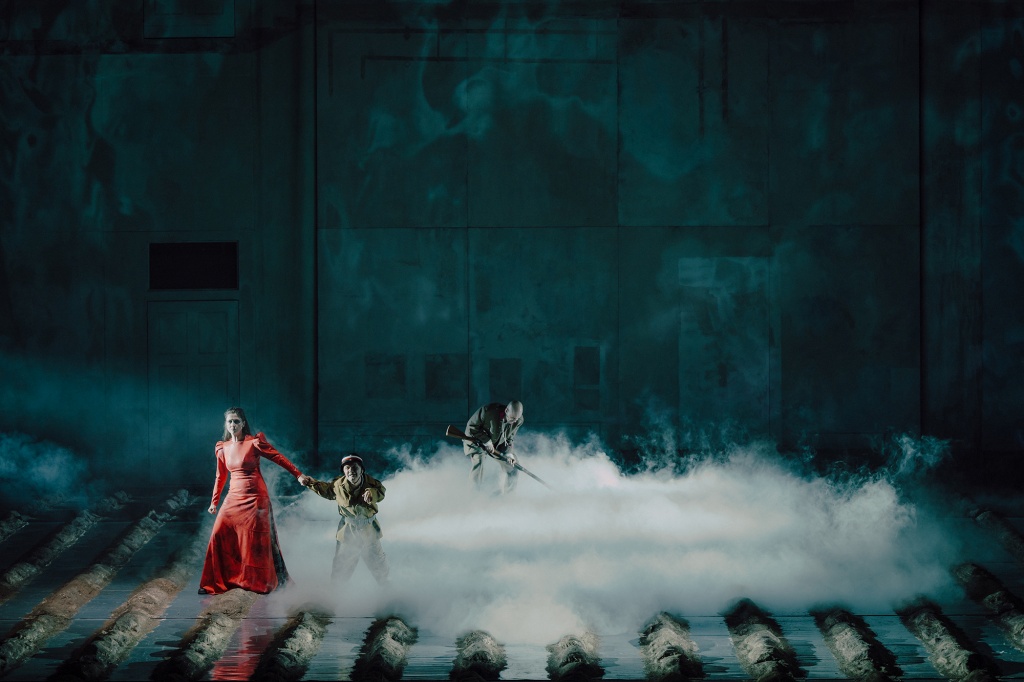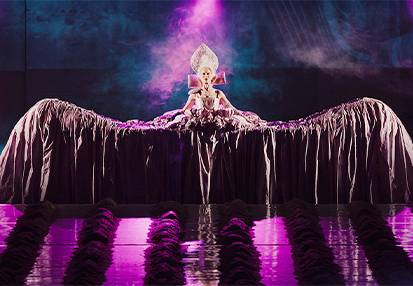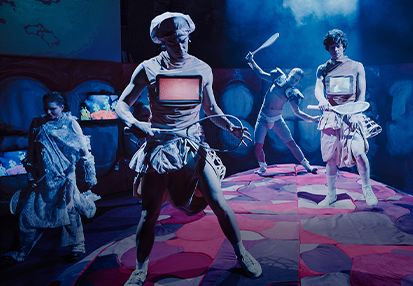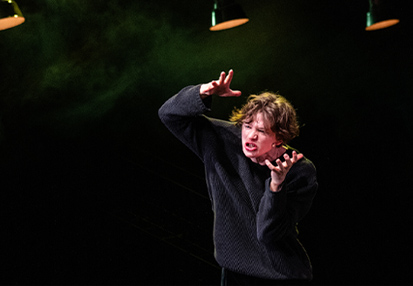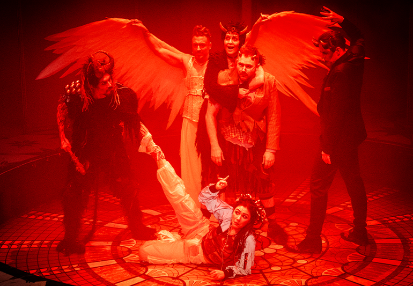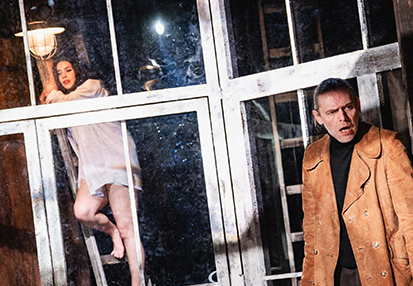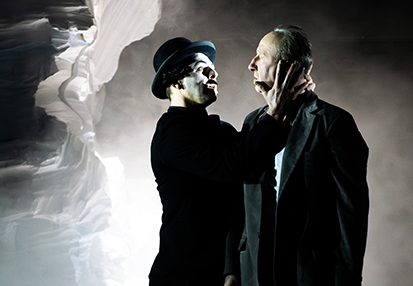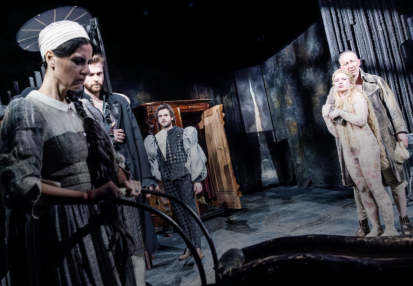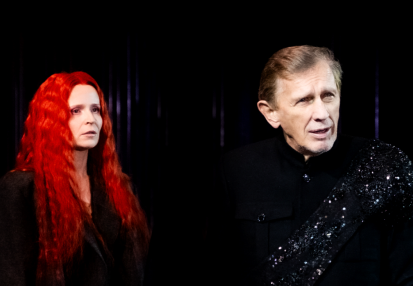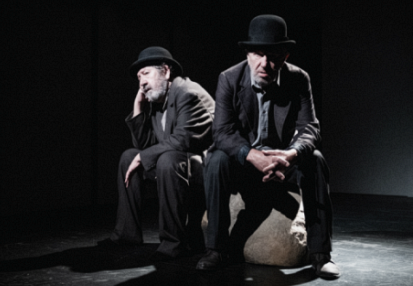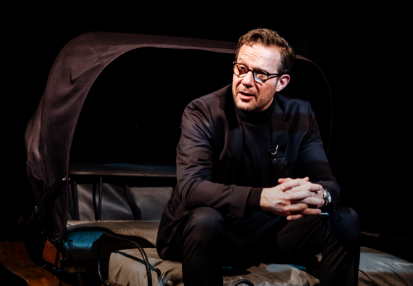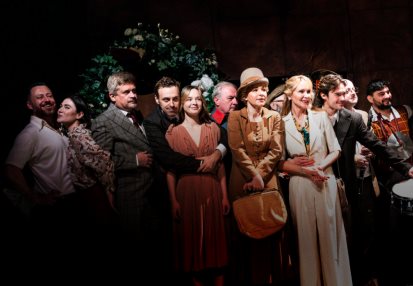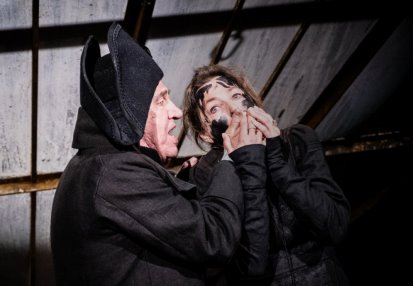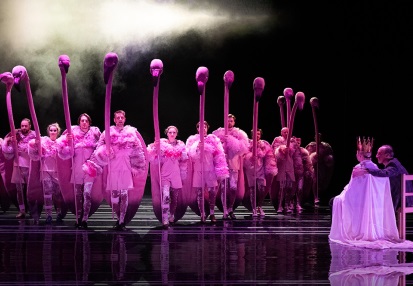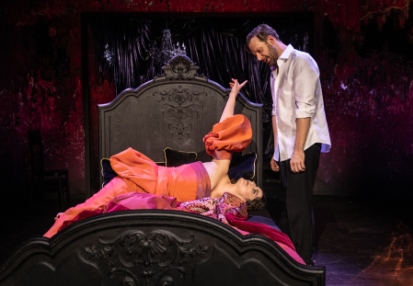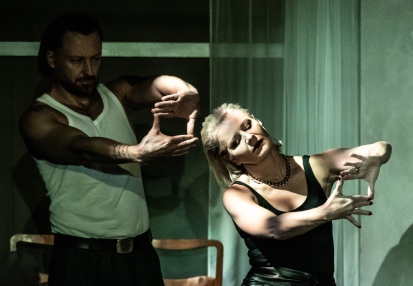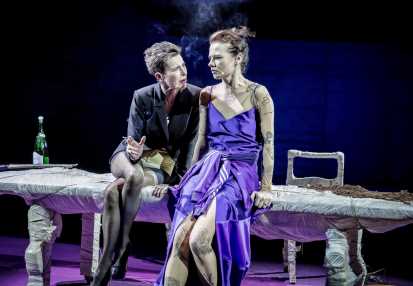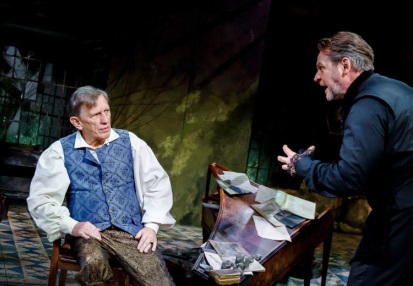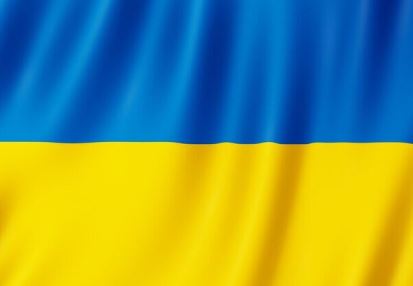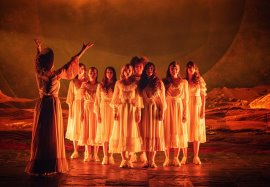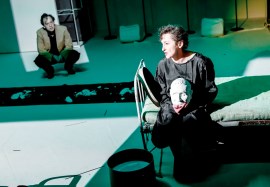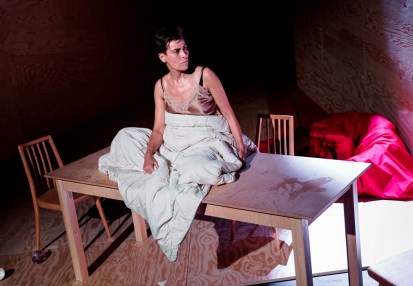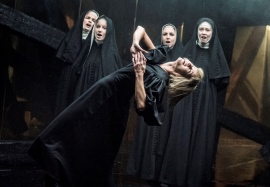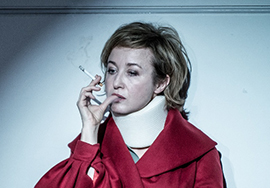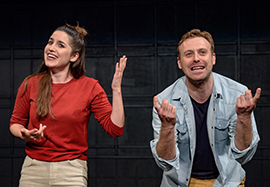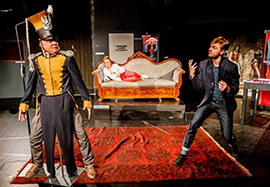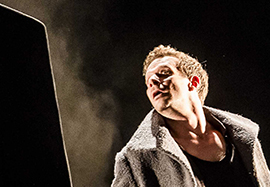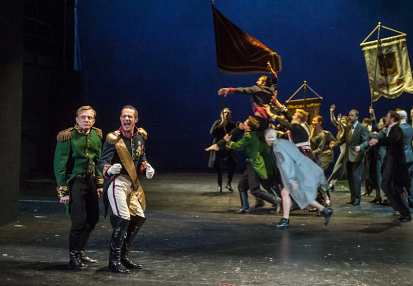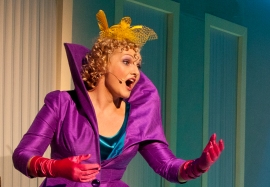The Polish Thermopylae
In his first play at the National Theatre, director Jan Klata has opted for Tadeusz Miciński's The Polish Thermopylae. As he announces in his programme notes, it is "a phantasmagoria about the cursed fate […] of our corner of Europe. About Poland, Russia, Ukraine, about the shadow that Fate has cast on successive generations of History's cannon fodder."
But why is this director, known for his bold interpretations of literary classics, returning to this text today? What can we learn from its original creator, a poet of stars and darkness, an author of mystical novels who died in 1918 ? Is History really the teacher of life?
In 1997, at the National Theatre following its rebuild after a fire, Jerzy Grzegorzewski opened his directorship with Stanisław Wyspiański's November Night. It dealt with the tradition of Polish uprisings and the painful dilemma: "To fight or not to fight?" This question is once again raising its ugly head in the "pre-war period" in which we are currently living. How will the National Theatre ensemble, led by Jan Klata, respond?
The premiere of The Polish Thermopylae will take place on November 22, 2025, to mark the 260th anniversary of the National Theatre.
Show recommended for ages 16+.
Please mind: this production contains elements that may cause discomfort: very loud music and sounds (earplugs are available), intense flashing lights, cigarette smoke, gunfire sounds, intense choreography. The performance addresses issues such as physical and sexual violence, torture, war, and death. The play contains profanity in the Russian language.
direction, stage adaptation and musical arrangements: Jan Klata
set and lighting design: Justyna Łagowska
costume design: Mirek Kaczmarek
dramaturgy: Miłosz Markiewicz
choreography: Maćko Prusak
video: Natan Berkowicz
live music: Gruzja / Artur Rumiński – guitar/electronics, Bartosz Lichołap – drums, Patryk Rzeszutek – vocals/synthesizer, Mateusz Maryjka / Kamil Staszałek / Piotr Gruenpeter – bass
director's assistant, prompter: Magdalena Markowska
costume design assistant: Maria Mordarska
vocal preparation: Mariusz Chojecki
stage manager: Krzysztof Kuszczyk
The following musical works were used in the performance: Brutalismus 3000 alleswirdgut, Brutalismus 3000 Europaträume, Gruzja Aleksandria, Gruzja Jeszcze nie mamy na was pomysłu III, Gruzja Kamera Dionizosa, Gruzja Manam, Gruzja Niedostatkiem w piękny rejs, Gruzja Ratyzbona, K Foundation (The KLF) K Cera Cera (War Is Over If You Want It), William Onyeabor Better Change Your Mind, Chris Watson El Tren Fantasma 10 Veracruz.
Cast
-
 Anna Grycewicz
Anna Grycewicz
Wita
-
 Danuta Stenka
Danuta Stenka
Catherine II
-
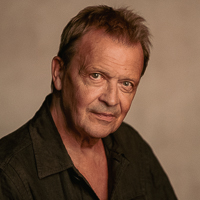 Jan Frycz
Jan Frycz
King Stanislaw August Poniatowski
-
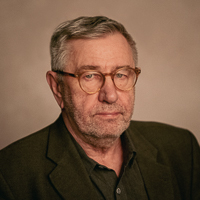 Jerzy Radziwiłowicz
Jerzy Radziwiłowicz
King Stanislaw August Poniatowski
-
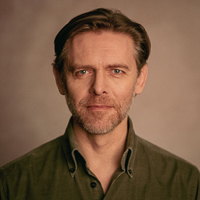 Oskar Hamerski
Oskar Hamerski
Prince Potemkin, Wanka Kain, Arzanow
-
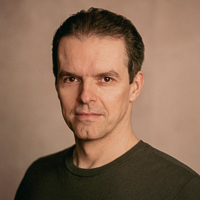 Robert Jarociński
Robert Jarociński
Hetman Rzewuski, Lucchesini, Ritter von Tottenweide, Primate
-
 Mateusz Kmiecik
Mateusz Kmiecik
Jermolow, Staszic, Priest Moralist, Padre Saluzzo, Doctor
-
 Cezary Kosiński
Cezary Kosiński
Monk, Kosciuszko
-
Kamil Mrożek
Stackelberg, Bishop Krasicki, Kollataj, Szczesny Potocki, Zolzik, Treasurer, Lord Gardiner, Wounded
-
 Paweł Paprocki
Paweł Paprocki
Officer, Surgeon, Trembecki, Ksawery Branicki, American, Confederate, Krzykala Filutkiewicz, de Cache, Dabrowski
-
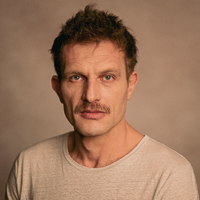 Karol Pocheć
Karol Pocheć
Prince Jozef Poniatowski
-
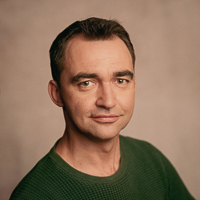 Marcin Przybylski
Marcin Przybylski
Mamonow, Marshal Malachowski, Priest Historian, Bishop Kossakowski, Marshal Bielinski, Doctor
-
Arkadiusz Pyć
Witold, Child (guest actor)
-
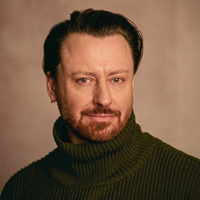 Adam Szczyszczaj
Adam Szczyszczaj
Great Kofta, Lyre-man Szczerbina, Krakremija, Sievers
-
 Paweł Tołwiński
Paweł Tołwiński
Marshal de Ligne, Ignacy Potocki, Suchorzewski, Toll
and
Marek Burzyński, Jacek Czuba, Rafał Karasiński, Patryk Koch, Waldemar Kowalski, Sławomir Łoszewski, Maciej Łukaszek, Mateusz Mainhart, Stefan Michalski, Krzysztof Nowicki, Dariusz Osiadacz, Roman Rakowski, Michał Suska, Łukasz Szczotkarz, Bartłomiej Szymański, Michał Ulejczyk, Wojciech Wawer, Mansour Zare, Tomasz Zawadzki
Production team
- lighting technicians: Bartłomiej Kaczalski, Krzysztof Łukasz Stefan, Zbigniew Szulim
- sound technicians: Hubert Majewski, Mariusz Maszewski, Marek Szymański
- video projections: Mariusz Chałubek, Paweł Woźniak
Licence for this stage production was granted by the Society of Authors – ZAiKS.
Gallery
